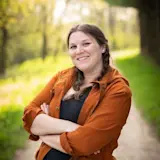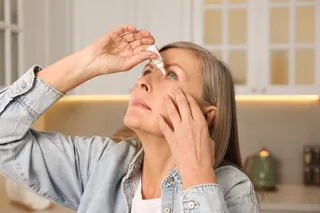Monday mornings always seem to come way too fast, especially if you spent most of the weekend staying up way too late, perhaps drinking alcohol or smoking. While it’s relatively common for people to stay up late on the weekends, foregoing sleep may lead to a new health concern called social apnea.
A new study published in the American Journal of Respiratory and Critical Care Medicine, from Flinders University, aims to introduce social apnea as a contributing factor to Obstructive Sleep Apnea (OSA) and its growing severity.
“Sleep apnea is already a major public health issue, but our findings suggest its true impact may be underestimated,” said lead author and Research Fellow Lucia Pinilla from FHMRI (Flinders Health and Medical Research Institute) Sleep Health, in a press release.
Weekend Severity for Obstructive Sleep Apnea
For this study, researchers at FHMRI analyzed data from 70,000 individuals worldwide. They noticed a consistent and significant uptick in OSA severity during the weekend. Because of this, the researchers coined the new concern as social apnea.
“Most clinical diagnostic testing is done on a single night, typically a weeknight, missing the weekend effect we’re now calling social apnea,” Pinilla said in the press release.
Read More: Can Animals Have Sleep Disorders?
Low Sleep Leads to High Health Risk
According to the data collected in the study, Pnilla and the team believe that certain weekend activities, like staying up late and consuming alcohol, can lead to sleep-disordered breathing. This in turn could lead to increased risks of heart disease, extreme fatigue, depression, and cognitive decline — like dementia. In some cases, there was even an increased risk of motor vehicle and other accidents.
After comparing sleep data from participants on weekends versus weekdays, the research team found that on Saturdays, people were 18 percent more likely to have moderate to severe OSA than on a mid-week day, like a Wednesday.
Additionally, the results showed that staying up late on weekends, along with sleeping in, worsened sleep apnea. According to the study, sleeping an extra 45 minutes or more increased the severity of sleep apnea by 47 percent.
The team noted that men were 21 percent more likely to experience worsening sleep apnea, while women were only 9 percent more likely. They also found that adults under 60 years old had a 24 percent higher risk on the weekends compared to adults over 60, who had only a 7 percent risk.
“We don’t yet know exactly why, but alcohol use, lighter sleep, and less consistent use of OSA therapies likely play a role,” said Matthew Flinders Professor Danny Eckert, director of FHMRI Sleep Health and senior author on the paper, in a press release.
Sleep Consistency Is Key
Staying up late may not be the only contributing factor to worsening OSA. According to research from a separate study, led by Flinders University’s Bastien Lechat, these weekend activities combined with shifting seasons can also increase the severity of OSA.
“OSA tends to be worse during summer and winter, with severity increasing by 8 to 19 percent compared to spring and autumn,” said Lechat in a press release.
“This seasonal spike is partly explained by higher temperatures, which disrupt sleep and lead to lighter sleep stages, which is associated with worse OSA. In winter, longer sleep and later wake-up times increase time spent in REM sleep, which is also linked to more frequent apnea events,” Lechat continued in the release.
With this information, the research team is calling for more multi-night sleep studies to measure the severity of OSA in patients.
“Relying on a single-night sleep study may miss important variations, leading to underdiagnosis or misclassification of OSA severity,” Eckert said in the press release.
To help combat sleep apnea, Eckert suggested trying to maintain a consistent sleep schedule.
“Try to keep the same sleep schedule throughout the week and weekend, ensuring that you get the recommended 7 to 9 hours of sleep a night,” Eckert said in the press release. “Keeping a fixed wake-up time and using your prescribed OSA therapy, even on weekends, and going to bed when you feel sleepy will help ensure you frequently get enough restorative sleep, which can help combat the weekend spike in OSA.”
This article is not offering medical advice and should be used for informational purposes only.
Article Sources
Our writers at Discovermagazine.com use peer-reviewed studies and high-quality sources for our articles, and our editors review for scientific accuracy and editorial standards. Review the sources used below for this article:
- American Journal of Respiratory and Critical Care Medicine. “Social Apnea”: Obstructive Sleep Apnea is Exacerbated on Weekends
- Nature Communications Medicine. Obstructive sleep apnea severity varies by season and environmental influences such as ambient temperature















